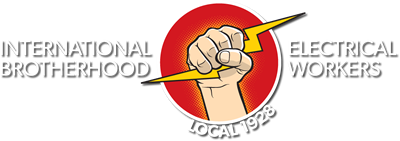Why should I join a union?
A union is a democratic organization of a majority of the employees in a facility. The basic idea is that by joining together with fellow employees to form a union, workers have a greater ability to improve conditions at the workplace. Today many employers are responding to econmic challeges by trying to cut costs, and for some that may include reducing their workforce. If a worker is being let go, they will be in a much better position if they are in a union.
What protections does a union give me?
In a non-union workplace, management has the right to make decisions, regardless of how those decisions impact employees. In a unionized workplace, management still has the right to manage, but their right to manage has limits. Those limits are negotiated and enshrined in the collective agreement. A collective agreement is a legally binding contract between the employer and employee that covers wages, benefits and rights and protections that are not available to other workers. In a unionized workplace, management has to abide by the laws of the land and by the collective agreement. Often a collective agreement will limit the changes that can be made to benefits and other working conditions during the life of the contract. Other changes have to be negotiated during collective bargaining, and the members of the union are able to vote for or against the proposed changes. During difficult times, this system makes it more likely that an employer will avoid actions that it cannot justify to its employees.
What about job security?
Unons protect workers from arbitrary employer actions relating to discipline and dismissals. That protection makes jobs better and often lead uion members to stay at their jobs longer than non-union workers. Better training, lower turnover, and an opportunity for workers to have a voice in deciding how work gets done also means that unions can increase productivity.
Aren't I protected even if I don't belong to a union?
You do have rights by virtue of being an employee in Canada, where laws and regulations protect workers, but they are very limited. For example, there are basic statutory rights on minimum wage and overtime. But if you are targeted during downsizing, your rights are usually limited to a modest severance and the right to collect EI.
If we form a union, does it mean that we can't deal directly with our supervisor?
In a union workplace, most problems are resolved directly between workers and their supervisors. A shop steward is available to help, but only if a member requests that help because they have been unable to resolve the issue directly with the supervisor. In a non-union workplace, management has the final word. When you are protected by a collective agreement, you can talk all you want with management, but you don't have to take "no" for an answer. Being part of a union gives you the right to effectively appeal unfair decisions and force your employer to correct unfair actions.
If we form a union, do we have to go on strike?
The decision to go on strike is very seriuos and occurs only when workers feel they must take dramatic action to proect their rights, wages, and benefit. Members only go on strike if the membership votes overwhelmingly to do so. The decision about what to fight for and how hard to fight is always up to you as union members.
What does it mean to sign the union card?
When you sign a union card, it means you want the union. The card is a commitment of support. And it gives us the legal support to take an application to the Labour Board for certification. There are provincial laws that govern union certification.
Who runs the union?
Unions are democratic organizations run by the members. You elect the Local's officers. You vote on issues of importance to you. You vote on your contract. You elect delegates to national conventions, where delegates vote on major issues affecting the union such as constitutional amendments. The union is you.


